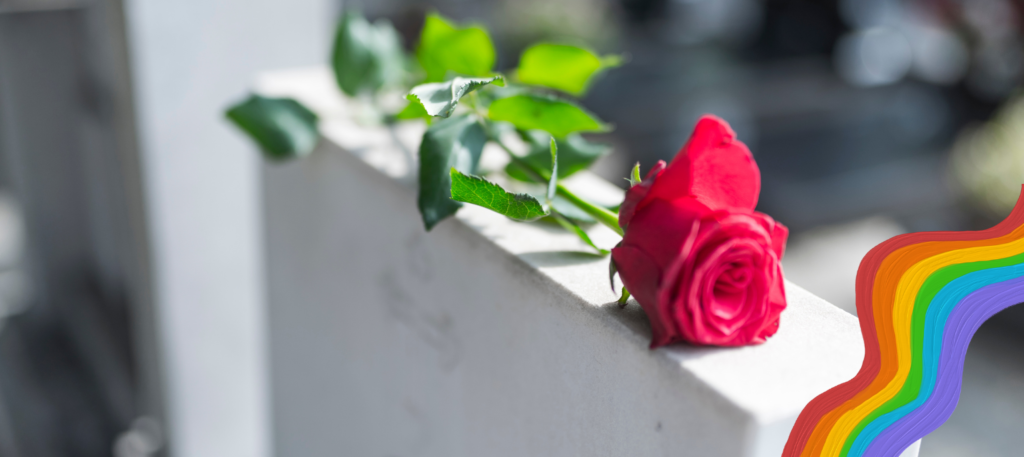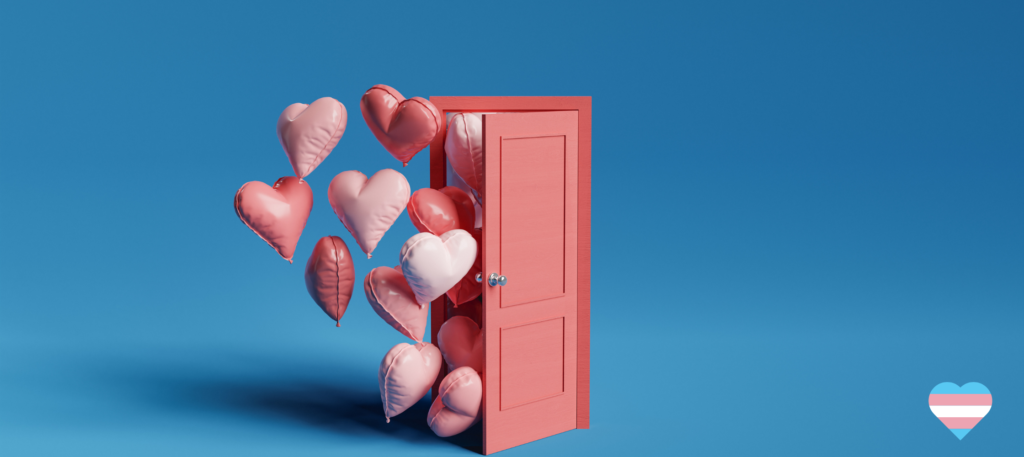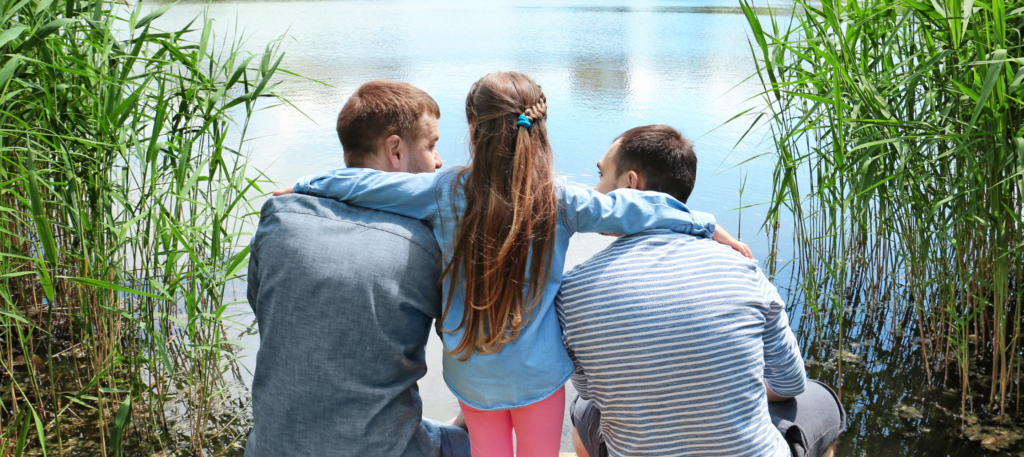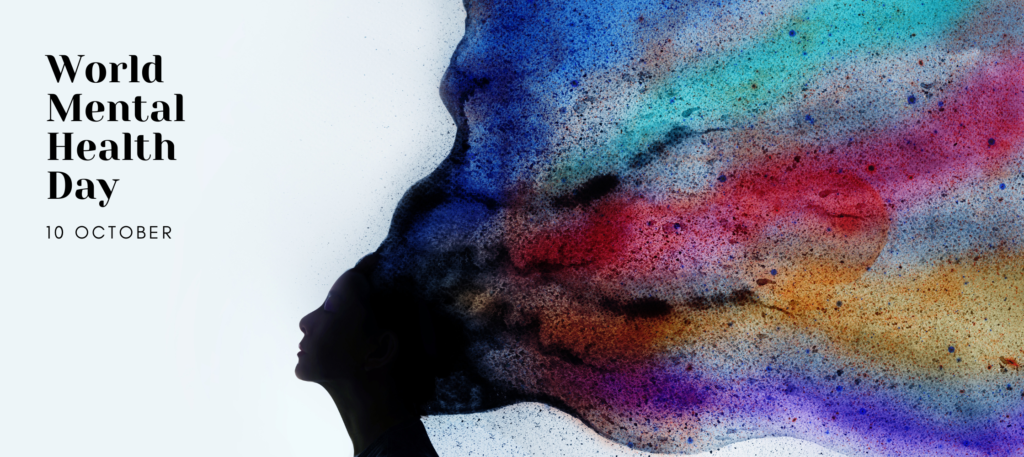Discussion with Ros Hawkins about Lesbians at Work on International Lesbian Day
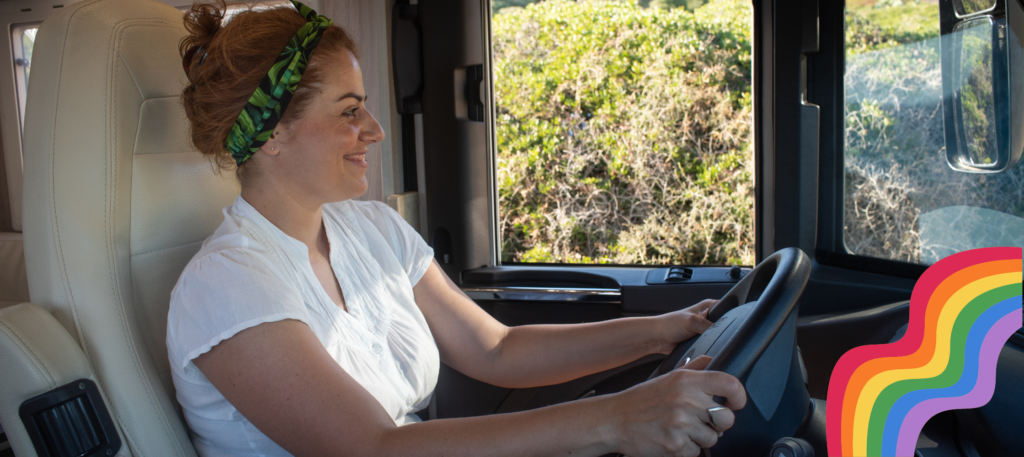
Lesbians have always been part of the paid workforce. But it’s been a long struggle for equal rights. The sneers, jokes, bullying and discrimination have always been there. But slowly, progress is being made. In this webinar, on International Lesbian Day, we explore some of the issues and challenges still faced by lesbians at work.
The interview meanders across the following discussion areas:
- Interviewing Ros Hawkins
- Language first: are you comfortable being called a lesbian or do you prefer to be called a gay woman?
- Tell us a little about yourself and what being a lesbian means to you.
- How was it for you when you came out? Can you briefly share your coming out story?
- What are the safe places for lesbians to gather? Are there lesbian clubs?
- What are some of the stereotypes associated with being a lesbian?
- Have you ever encountered those in a workplace? If so, what did you do about it?

Transcript of interview with Ros Hawkins about lesbians at work
Bronte: Well, hi! It’s Bronte Price here from the Equality Network and I’m a cisgender gay guy and welcome to yet another safe space chat where, bit by bit, we talk to various people from the LGBTIQA+ community and we talk about all sorts of issues.
And today we’re talking to Ros Hawkins who’s a lesbian a gay woman and of course, lesbians have always been part of the community, the broader community as well as the queer community. They’ve also been part of the paid workforce for a long time and perhaps unpaid workforce but it’s been a long struggle for equal human rights and those sneers and the jokes and the discrimination of the bullying, they’ve always been there.
But we think slowly and gradually, we are making progress to get rid of all that and as we head towards International lesbian day, it’s a really good day and a good time to explore some of those issues and challenges and talk about coming out and what it’s like to be a lesbian in 2022.
So welcome Ross and thank you for coming on. Language first– are you comfortable being called a lesbian or do you rather be called a gay woman?
Ros: I’m comfortable with both.
Bronte: Thank you! So, tell us a little bit about yourself and a little bit about what being a lesbian means to you, if you will.
Ros: Okay well I’m a 75-year-old woman or young woman and my background is that I’m a trained nurse and that I was born and brought up in England and I lived in London. I came to Australia in 71 and at that time I was still, as I say, playing with boys and it wasn’t until 75 that I met my long-standing partner Pat.
We were together for 45 years. Sadly she died nearly two years ago from dementia and in-stage breast cancer. We managed to keep her here at home which was great. So, currently, I’ve been living where I am now for 40 years and that’s a rural property up in Northern New South Wales.
You might be able to see I’m out on the veranda at the moment. What more about myself.. so also nursing-wise– I retired after 50 years of Nursing really because my partner needed me to look after her.
Bronte: Yeah yeah so time to be a personal nurse rather more general nurse.
Ros: Exactly, that’s just it, Bronte. Yeah!
Bronte: Perfect! So back in the day when you were still playing with boys, as we say, how was it for you growing up as a teenager, maybe someone in their early 20s? How was that for you?
Ros: Yeah good! I had a happy upbringing. I have three sisters and my father in some ways would have been considered a feminist because he made sure that we were all able to have a qualification and look after ourselves and felt it was his responsibility to make sure that we had a driver’s license as well.
So I started nursing when I was just 18, went into training and I loved it. In fact, I’ve had various types of jobs as a nurse, and first of all with children– sick children– here in Australia. When I came to Australia, really came out just for two years but you know I’ve been here ever since.
Bronte: So those two years were supposed to be what a working holiday?
Ros: Yeah well, because I was trained in a really well-known Children’s Hospital as well as an adult hospital for my adult part of it, it was very easy for me to get a job in Melbourne where I landed first at the Royal Children’s Hospital and I really enjoyed that. Well as I said I’ve enjoyed most jobs that I have had in nursing.
Bronte: And those skills are internationally transferable, aren’t they? Of course, they are!
Ros: Well they certainly were at that time, it was really easy. Yeah yeah! And you know my registration– my English registration was just recognized. I didn’t have to do anything much about it, yeah.
Bronte: What were the other parts of nursing that you eventually got involved in, apart from Pediatrics?
Ros: Well, I eventually got involved with sexual health. I started that interest when I worked at the University– Melbourne University’s Student Health Center, which a lot of that was sexual health issues and then my partner and I bought this property and we moved up here in 1981.
And so I worked in Family Planning then Women’s Health and then I was part of the team that set up the sexual health and HIV AIDS service here in Lismore which was probably the first rural clinic and that was in 1990.
Bronte: Wow!!
Ros: That was really, it was challenging for a range of reasons. Yeah, I felt that I was really privileged to be working there and also setting up the service and doing quite a bit of education of other health care workers, etc.
Bronte: Thank you and we’ll take a bit of a deeper dive into that part of your life.
Ros: Okay!
Bronte: All right! I wonder if you’re prepared to tell us about how you came out– your coming out story! How did that happen? And how did you eventually meet Pat? How did you come across each other?
Ros: Okay well I came across Pat when a friend of mine who used to live in Pat’s shared house. She had a house and always had three people sharing the house to help her pay the mortgage, of course. And one of my friends was moving to Sydney and my flatmate was going to Western Australia.
So it seemed fairly reasonable that I should, you know, see if I could take her place in the house. So it became quite well– some people call it notorious– because a few people have met their long-time partners through that house. It did seem as if maybe I wasn’t going to be allowed to become one of the residents because I did actually have a cat and the house already had a cat and they were a bit worried that you know that cat would not like it but anyway I was interviewed by everybody and I made apparently a pretty mean Brandy Alexander and so on the grounds of the Brandy Alexander’s, I was allowed in and so Pat owned the house and we got to know each other and then we became sexual partners and yeah well I suppose the rest is history!
But in terms of coming out, there was no big coming out. Some people had assumed not
necessarily knowing that Pat was gay and so when I started spending a lot of one-to-one time with her, then, some thought, “oh that’s funny..what was..well you know she’s usually with the boys..what’s happening here”.
So as I say that was a gradual one but you know there had been times later on when well it’s often when people assumed that you know I had a man of the house around me and particularly up on the farm there would be an assumption that you know that there would be a man there. The other big thing that we did and that is we’ve decided that maybe we had something to offer– a child and so we went about me getting pregnant and she was born in Melbourne and we came up here when she was about six or eight weeks so there were two women and a baby that moved into this and owned this 200-acre farm.
So, I think it was a challenge for members of the community and you know we got involved with all of the school, preschool, you know both fabricate and you know we were just community members. We just lived in the valley and I’ll tell you what if we weren’t out before Kate, our daughter, went to school, we would have been outed then, so yeah!
Bronte: So that thing isn’t there by association but if you if you hang around with gay people or someone who is assumed to be gay or lesbian then ipso facto you know you’re pretty much gay yourself. That was the thing back in that one.
Ros: Yeah
Bronte: And I think it’s really amazing that you both chipped away at some of those stereotypes and assumptions, you know, how can there possibly be a farm without a man on it and then that leads to well these two look like they’re in a bit of a relationship– which one’s the man and which one’s the woman and all stereotyping underlying by assumption stuff. Is that pretty accurate of how it came today?
Ros: Yeah, we share things, I mean people might have thought. We were both employed. I was only doing some part-time work because of having you know young Kate.
Bronte: Yeah
Ros: And yeah it’s just, particularly on the phone– can we speak to Mr. Hawkins, please? No, there isn’t a Mr. Hawkins!
So sometimes I would just say to people– no I have a female partner and there would either be silence on the phone or whatever, yeah! Pat was 15 years older than me and some of those coming out issues were a bit bigger for her than they were for me.
Bronte: Yeah
Ros: For example, walking along the street hand in hand was not something she felt comfortable with and not kissing and hello and goodbye.
Bronte: Yes
Ros: Yeah for her it was a lot more of the challenge, yeah!
Bronte: Okay and even though those PDAs, those “public displays of affection” seem small and innocuous and they are but to someone, you know, who’s lived through a whole history of discrimination, hostility, ignorance and all that stuff– those things are big and it comes back I guess, to not not the perception so much but the safety that you perceive as well.
Ros: Yeah yeah
Bronte: Yeah
Ros: Yes as I say you know I probably was more like a duck to water and was nothing and would have been more okay. And Kate always called us by our first names so yeah I guess some people might have thought at first that it was a grandmother mother and a daughter that
had come up onto the farm but yeah didn’t take them all that long before they were put right.
Bronte: And that, through Kate that at school particularly that those barriers got pushed even further like you just educated by doing.
Ros: Yes, absolutely! You know if there was a lamington drive, I would be going into the hall with all these other mothers and a few fathers making the lamingtons. And you know I remember one time– I think it was when she was in preschool, we went to the fire station and they were allowed to you know get up onto one of the fire trucks and have a look and have a little talk and somebody said something about, well, I thought that that fireman looked all right and I said, “yay! he is pretty cute” and his mothers turned around on me. Well I wouldn’t think you would say anything like that..you wouldn’t recognize, you know, think and I said yeah yeah I can still recognize if somebody’s cute or not.
Bronte: Of course, funny! So it’s just kind of educating by example and by being..
Ros: Yeah yes yeah!
Bronte: Were there any times when you felt a little bit unsafe or you received some hostility because of…
Ros: Yeah there was a time– I’m not sure if I mentioned this to you before when we had a chat that I was on a two or three day workshop about sexuality, sex education, and there were my teachers and community nurses were the main participants and then there was…and the Family Planning Association had a few little vignettes that we could you know have a look at like one mother telling the parents that she was pregnant and another one was a young man telling mum that he was gay.
I had been feeling fairly comfortable with the group and I was actually going to make a statement because it wasn’t falling out so to speak without me. And but then one of the mothers said, “if that was my son, if my son did that to me, I’d kill him and I’d send him home, I’ll send him out and you know he wouldn’t be allowed to stay here”, and it was said with…it wasn’t a joke…it was said with venom really.
Bronte: Yeah
Ros: And I thought, no, this isn’t a group of people that I want to say “by the way, I’m a lesbian”. I didn’t so then I didn’t feel safe to say that.
Bronte: Okay you pick your times, don’t you?
Ros: Yeah yeah.
Bronte: I don’t know instinctively I think if there’s a smidge of lack of safety and you just go back into yourself, I think.
Ros: Yes, yeah! I’ve never ever discussed it with my parents who lived in London. I thought that they didn’t want to know. I knew that Pat was supporting me, looking after Kate. And when I first went over with Kate because she turned four while we were there and certainly my mother was delving into, you know, how many bedrooms are in the house and who’s like yeah…but anyway, you know it was never discussed because I didn’t think they wanted to.
Bronte: Okay, in Regional New South Wales, Country New South Wales, are there safe places? Is there a lesbian community around this more are there safe places where you can gather and just socialize, I guess?
Ros: Yes, up here, of course, has been one of the biggest tropical fruits as they might be been going for many years, yeah. And so yes, there are she’s quite a lesbian community really. And lots of, you know, parties that the lesbians are just as active as gay men and bisexuals and probably..oh I’ve heard some of the men say that lesbians are a bit better organized at doing things. Anyway..
Bronte: So we’ve talked a little bit about some of the stereotypes that you’ve had to kind of confront or put up with as a lesbian, are there others? Like being on the farm, the hard-working kind of couples, are there others that you’ve come across or not so much?
Ros: No not so much really. I think that one of the things is that I’m me and you know I guess involved with community things and of course now– I mean Pat and I were together for 45 years so yes! It wasn’t an issue for me after that. We did have, you know we had Community Care and also we were one of the first people to get an LGBTI’s specific care package up here so we were actually…the providers said you know we’re learning about this. Please would be happy for you to teach us, you know there I think was sometimes when somebody knew would come into the house and then they’d say something about your mother and so I would say not my mother she’s my partner and then they’d be covered with confusion because they…but anyway , you know so there was a certain amount of…we had carers coming in who to their knowledge didn’t know anybody that was a lesbian but they seemed– we’re just women.
Bronte: I think at that time when one of you was, you know quite ill and well did you feel like having to educate straight carers at a time when Pat was unwell? Did that add to a sense of not so much vulnerability but did you find it just draining or was it just part and parcel of getting on with life?
Ros: It was part and parcel of getting on with life and the other thing is because of the job I had which we’ll talk about more at another time. I had been a member of the community that would go to some of the Aged care places when they were having Edge rainbow education. So, the main reason why that was really important was not just because of care for lesbians but care for anyone in the alphabet soup… group, and but particularly for Aged gay men who you know they’d had police expect bad negative police experience for them coming out was much more of an issue than for me and if they did have to have a carer come in, they would often, you know, degay their house and…
Bronte: Correct, yeah, that’s right. Okay! So as a nurse and kind of as part of your community work and your volunteer work, have you ever confronted or been subject to any of
that discrimination that we talked about before because you’re a lesbian or has it been pretty much, “no you know everyone’s been treated pretty equally:.
Ros: When I do think back, in some ways it’s hard to put myself back there because I’ve been so comfortable with being open for a long time and correcting people when they say your mother or you know, etc. So, now I lost my thoughts there but…
Bronte: Back in the workplace and discrimination.

Ros: Back in the workplace…oh there were times when until people really got to know me in the position I was in or whatever that I would not say anything. I didn’t feel it was relevant to say anything but nonetheless, you know, if I were to if when I did say something that yeah yeah well we know and we know that Pat’s your partner and you know so they’re…yes, people just were particularly up here there are so many gay people living up in this area.
Bronte: That’s exactly right! It’s a pretty well-known concentration of LGBTIQA+ people.
Ros: Not just New Year’s Eve.
Bronte: Thank you! That’s exactly right. What are some of the things, you know…you’ve been in this regional place for such a long time and you’ve had time to kind of scout the landscape and have a look at organizations and businesses that do the right thing and are inclusive and want to get educated rainbow educated. What are some of the things that you’ve seen some of the really inclusive workplaces do compared with those that just can’t be bothered?
Ros: Well, Acorn does quite a lot of training for businesses and they actually have a sticker that when that organization or business has done one of the trainings, then they put the sticker up to say, “this is a safe place”. And I think that that’s a good way of being able to say, “Hey, you
know it’s all okay with me and we’ve actually done some training around this and we welcome you if you need a safe place. It’s not a really large one it’s about but about 5×5 inches in the old terms. So, I think that that is a good thing. Some of the care places you actually have a rainbow pin or something that they put on their name tag.
Bronte: Yeah yeah.
Ros: I think those are some of the things that…
Bronte: …just a simple little indicator that they’re saying yeah they’re safe. They have had some education. You’re an elder of the LGBTIQA+ community and I’m just wondering if you can think back over the last three or four decades in particular and think of what are some of the things that have clearly changed for gay men and women and other members of the LGBTIQ community. What are some of the big wins that you think have been?
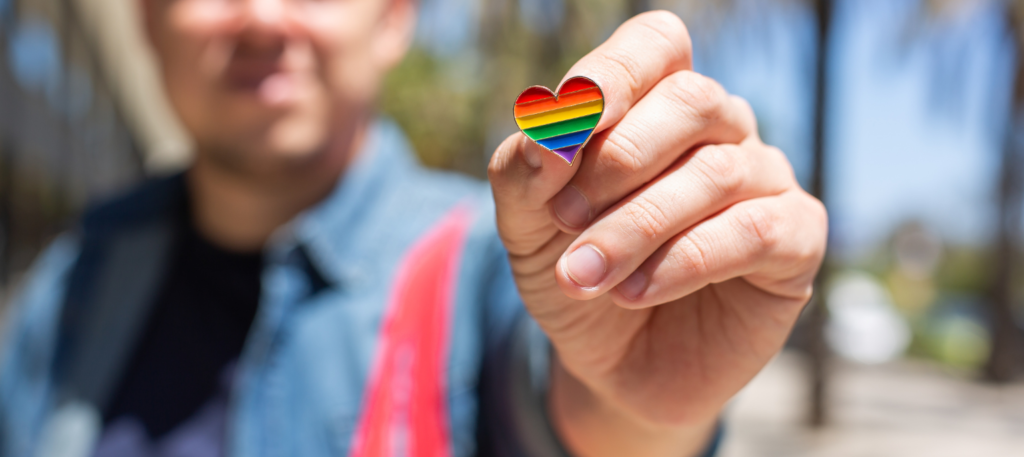
Ros: Well I think the big win is the acceptance of us.
Bronte: Yeah
Ros: I think it’s mostly the acceptance and the fact that places are prepared to do some training to become more aware. I think that’s probably one of the big things and you know sometimes when they had workshops like awareness workshops when they were looking at whether the government was going to actually start having the care package specifically for gay people, you know, I went to quite a few of those meetings as they came around as well. And I would always say that I’ve got two hats here– I’ve got my work hat and I’ve got the fact that I am a member of that community, I am a lesbian.
So, I was quite used to saying things like that as well but how else… well, Lismore is very open to… and you know it has had a New Year’s Eve parade for a few years and yeah that and
that’s good and the mayor you know would always come and say something and say we welcome diversity etc so.
Bronte: Yeah okay, thank you! Because you think back to perhaps the 1970s and homosexuality was still obviously a criminal offense, right?
Ros: Yeah that’s right and it never was for lesbians.
Bronte: Yeah yeah and well that’s the thing you know it was so so reviled to be LGBTIQA+ and even to be able to say and explain what that acronym means and to have the array of legal rights that they’re never just given they’ve never been fought for but they have been fought for and they’ve been one, you know, I think people our age would never have thought that we would end up marrying the person we loved back in the day. So there’s been some major… major wins.
Ros: Yeah that and that is a really big one. I guess, it didn’t occur to me that that was one of the biggest ones. Well I suppose it’s just another part of acceptance really.
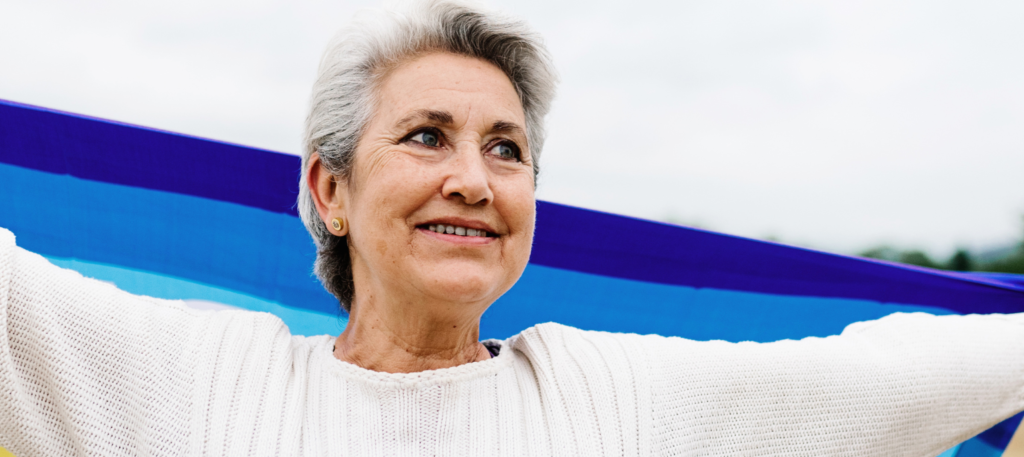
Bronte: It is! It’s always just, it never was the endpoints and it never could be the end point because there’s still some things that need to be more. More rights to be won, equal rights to be won but certainly a high profile one that gave…it shifted the lever if you will I think to enable some other ones to happen around marriage equality as well. That’s it’s been good… it’s so from here what’s the plan? You’ll live your days where you are on the same farm?
Ros: Yes that’s my plan! My daughter and her fiance are living in a one-bedroom house on the property and we’re going to swap so I’m going to be moving into the one-bedroom converted shed and they’re going to come down to the big house which is quite a bit bigger and yeah so
that’s a big thing for me to be…I mean I was the one that suggested it.
Bronte: Wow!
Ros: But you know I sort of look around and my hanging baskets and you know all sorts of things but yeah…
Bronte: But it makes sense, right?
Ros: Well it does make sense and there’s still a lovely view because we’re up on the hill and it’s just a slightly different view and I will be very comfortable. Might put another room on so that people can stay but yeah it’ll be alright and we now have a moving date.
Bronte: And the beauty of that is that you’re so close to Kate physically and personally of course so it’s just to flip it where they might need the extra room and you just don’t need all that room.
Ros: Yeah that’s right!
Bronte: Good sense!
Ros: Yeah yeah
Bronte: Lovely talking to you, Ros! Thanks so much for your time!
Ros: You’re welcome! You’re welcome for us to have a chat with you again!
Bronte: Fine thank you and I’m sure there’ll be more time.
Ros: Okay bye


